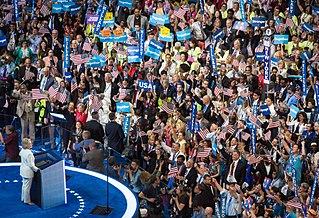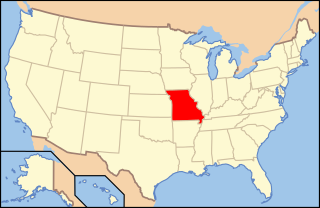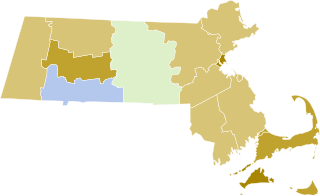Related Research Articles

The United States Virgin Islands, officially the Virgin Islands of the United States, are a group of Caribbean islands and an unincorporated and organized territory of the United States. The islands are geographically part of the Virgin Islands archipelago and are located in the Leeward Islands of the Lesser Antilles.

Politics of the United States Virgin Islands takes place in a framework of a presidential representative democratic dependency, whereby the governor is the head of the territory's government, and of a multi-party system. United States Virgin Islands are an unincorporated and organized territory of the United States, administered by the Office of Insular Affairs of the United States Department of the Interior. Executive power is exercised by the local government of the Virgin Islands. The judiciary is independent of the executive and the legislature.

The 1876 United States presidential election was the 23rd quadrennial presidential election, held on Tuesday, November 7, 1876.

The 1912 United States presidential election was the 32nd quadrennial presidential election, held on Tuesday, November 5, 1912. Democratic Governor Woodrow Wilson of New Jersey unseated incumbent Republican President William Howard Taft while defeating former President Theodore Roosevelt and Socialist Party nominee Eugene V. Debs.

The Reform Party of the United States of America (RPUSA), generally known as the Reform Party USA or the Reform Party, is a centrist political party in the United States, founded in 1995 by Ross Perot.
In Canadian politics, a leadership convention is held by a political party when the party needs to choose a leader due to a vacancy or a challenge to the incumbent leader.

The Democratic National Convention (DNC) is a series of presidential nominating conventions held every four years since 1832 by the United States Democratic Party. They have been administered by the Democratic National Committee since the 1852 national convention. The primary goal of the Democratic National Convention is to officially nominate a candidate for president and vice president, adopt a comprehensive party platform, and unify the party. Pledged delegates from all fifty U.S. states, the District of Columbia, and the American territories, and superdelegates which are unpledged delegates representing the Democratic establishment, attend the convention and cast their votes to choose the party's presidential candidate. Like the Republican National Convention, the Democratic National Convention marks the formal end of the primary election period and the start of the general election season. Since the 1980s, national conventions have become mostly inaugural events for the winning candidate, since winners are announced long before the convention. In 2020, both major parties, and many minor parties, replaced their usual in-person conventions with virtual programs due to the COVID-19 pandemic.
In the politics of the United States, the process of initiatives and referendums allow citizens of many U.S. states to place legislation on the ballot for a referendum or popular vote, either enacting new legislation, or voting down existing legislation. Citizens, or an organization, might start an popular initiative to gather a predetermined number of signatures to qualify the measure for the ballot. The measure is placed on the ballot for the referendum, or actual vote.

In the politics of the United States, elections are held for government officials at the federal, state, and local levels. At the federal level, the nation's head of state, the president, is elected indirectly by the people of each state, through an Electoral College. Today, these electors almost always vote with the popular vote of their state. All members of the federal legislature, the Congress, are directly elected by the people of each state. There are many elected offices at state level, each state having at least an elective governor and legislature. There are also elected offices at the local level, in counties, cities, towns, townships, boroughs, and villages; as well as for special districts and school districts which may transcend county and municipal boundaries.
The Constitution of the State of Rhode Island is a document describing the structure and function of the government of the U.S. State of Rhode Island.

The 1894 New York state election was held on November 6, 1894, to elect the governor, the lieutenant governor and a judge of the New York Court of Appeals, as well as all members of the New York State Assembly. Besides, a new State Constitution and four other constitutional amendments were proposed to the electorate, and were all accepted. Furthermore, the inhabitants of New York County and adjacent communities were asked if they wanted to join the proposed enlarged New York City, a project known as The Consolidation.

The Missouri Constitution is the state constitution of the U.S. State of Missouri. It is the supreme law formulating the law and government of Missouri, subject only to the federal Constitution, and the people. The fourth and current Missouri Constitution was adopted in 1945. It provides for three branches of government: legislative, executive, and judicial. It also sets up local governments in the form of counties and cities.

Voters of the Republican Party elected state delegations to the 2012 Republican National Convention in presidential primaries. The national convention then selected its nominee to run for President of the United States in the 2012 presidential election. There were 2,286 delegates chosen, and a candidate needed to accumulate 1,144 delegate votes at the convention to win the nomination. The caucuses allocated delegates to the respective state delegations to the national convention, but the actual election of the delegates were, many times, at a later date. Delegates were elected in different ways that vary from state to state. They could be elected at local conventions, selected from slates submitted by the candidates, selected at committee meetings, or elected directly at the caucuses and primaries.
N.Y. State Bd. of Elections v. Lopez Torres, 552 U.S. 196 (2008), was a case decided by the United States Supreme Court that involved a constitutional challenge brought against New York State's judicial election law, alleging that it unfairly prevented candidates from obtaining access to the ballot. The Supreme Court rejected this challenge and held that the state's election laws did not infringe upon candidates' First Amendment associational rights. Several concurring justices emphasized, however, that their decision reflected only the constitutionality of the state's election system, and not its wisdom or merit.
The 2012 U.S. Virgin Islands Republican presidential caucuses were held on March 10, 2012, the same day as the Guam, Northern Mariana Islands, and Kansas Republican caucuses. Unlike standard caucuses, the delegates for the Virgin Islands were elected directly by GOP caucus-goers during the first round. No straw poll was taken at the caucus, but the delegates were bound to the candidate they pledged themselves to before the voting started. The six delegates receiving the most votes go to the National Convention. Three of the top vote-getters had previously pledged to Romney, and one had pledged to Paul. In addition, two of the elected uncommitted delegates committed themselves to Romney after the election. Like Puerto Rico, the U.S. Virgin Islands cannot participate in the general election, but they can participate in the primaries.

California Proposition 59 is a non-binding advisory question that appeared on the 2016 California November general election ballot. It asked voters if they wanted California to work towards overturning the Citizens United U.S. Supreme Court ruling.

A referendum on holding a constitutional convention was held in the US Virgin Islands on 3 November 2020 alongside general elections. 72% of voters responding to the referendum question voted in favor and turnout was above the 50% threshold required.
The United States Virgin Islands are a group of around 90 islands, islets, and cays in the Caribbean region in which inhabitants were claimed by Spain in 1493. No permanent settlements occurred in the Spanish period and the islands were colonized by Denmark in 1671. The inhabitants remained Danish nationals until 1917. From that date, islanders have derived their nationality from the United States. Nationality is the legal means in which inhabitants acquire formal membership in a nation without regard to its governance type. In addition to being United States' nationals, Virgin Islanders are both citizens of the United States and [local] citizens of the Virgin Islands. Citizenship is the relationship between the government and the governed, the rights and obligations that each owes the other, once one has become a member of a nation.

The 1853–54 Massachusetts gubernatorial election consisted of an initial popular held on November 14, 1853, which was followed by a legislative vote that was conducted on January 9, 1854, which elected Whig Party nominee Emory Washburn. The ultimate task of electing the governor had been placed before the Massachusetts General Court because no candidate received the majority of the vote required for a candidate to be elected through the popular election.
The 2024 United States Virgin Islands general election will take place on Tuesday, November 5, 2024, to elect the non-voting delegate to the United States House of Representatives, all 15 seats in the Legislature of the Virgin Islands, members of the Virgin Islands Board of Elections, Board of Education, and the 15 delegates to the Sixth Constitutional Convention.